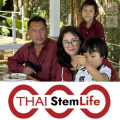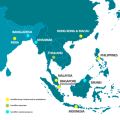You are here
News
2023
May 2023 On 17 April 2023, the FDA gave approval to the Gamida Cell product Omisirge (formerly known as Omidubicel, and before that as NiCord). This is the first FDA market approval of an expanded cord blood product.
Apr 2023 This is the story of Sophia, a young girl in Singapore diagnosed with Autism. Her parents participated in a clinical trial at KK Women’s and Children’s Hospital where Sophia received an infusion of her own cord blood.
Apr 2023 Anja Health is a family cord blood bank that is led by a Gen Z CEO and focuses their marketing on outreach to Gen Z parents via TikTok. Kathryn Cross explains her motivation for launching a cord blood bank, and how her company innovates their services to fit the values and priorities on the Gen Z parenting community.
Mar 2023 Between the Dubai Stem Cell Congress and the MENA Stem Cell Forum, Dubai is becoming known as a center for meetings about cell therapy research.
Mar 2023 The frequent use of MSC in regenerative medicine has led to some overlooked realities: MSC are not all the same. Even UC-MSC from umbilical cord tissue are not all the same. Exposure to enzymes changes MSC, Ex Vivo Expansion changes MSC, and multiple culture passages continue to change MSC.
Feb 2023 Romania, a small country located in southeastern Europe, is one of the most active EU countries for cord blood banking. There are ten private banks, but no public bank, offering cord blood storage to parents in Romania. There is currently an active clinical trial in Romania which treats Autism Spectrum Disorder with the child's own cord blood. This trial has led to the discovery of a biomarker for ASD, and the trial has been extended due to good preliminary results.
Feb 2023 Matinn was conceived with the help of PGD-HLA assisted reproduction so that he could be a transplant donor for his brother Marjo. The Jetanin Group partnership of Superior ART and THAI StemLife have performed 15 successful PGD-HLA transplants to cure Thalassemia, the 2nd largest number worldwide from a single center.
Jan 2023 Cordlife Group is Asia's largest network of cord blood banks, with full laboratories in seven countries. Cordlife operates some of the most highly accredited cord blood banks in Asia, and they have released cord blood for therapies at 18 healthcare institutions in nine countries.
Jan 2023 Kamsiyochukwu is from Nigeria and he suffered from the hereditary blood disorder Sickle Cell Anaemia. He needed a stem cell transplant to cure his disease, but he did not have a match in the public registries of donors. He was saved by a cord blood transplant from his baby brother. His mother gives thanks to the cord blood bank that made this transplant possible. The bank also paid towards their medical costs through an insurance program.
2022
Dec 2022 Eric traveled to Thailand for MSC therapy to help him recover from a traumatic brain injury. He had previously undergone months of testing and conventional therapy in the United States, but felt that his recovery was not complete. At the hospital in Thailand, the MSC were injected both into his spine and into his bloodstream. The MSC came from a laboratory that had AABB somatic cell accreditation. Eric feels that his recovery is now complete and he can once again devote himself to the charity he founded.










